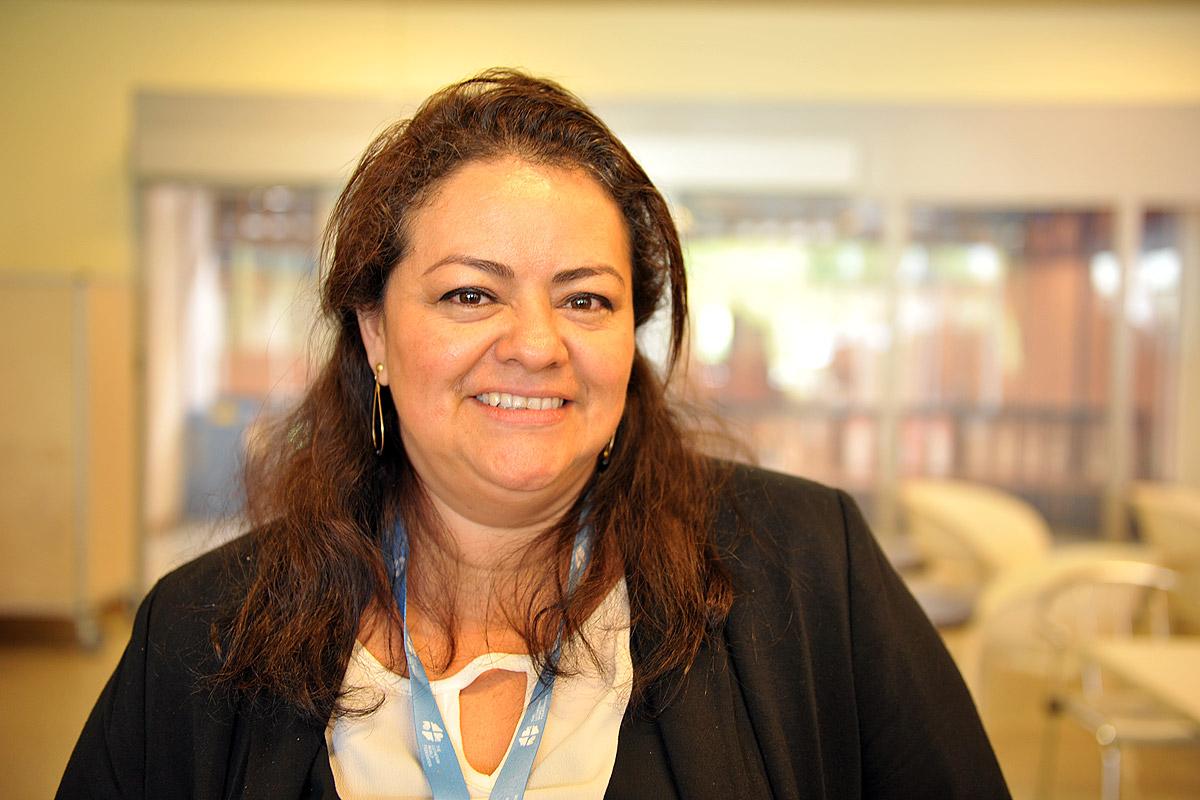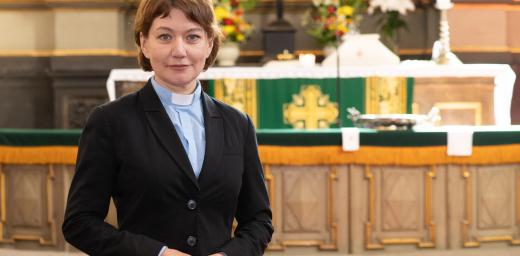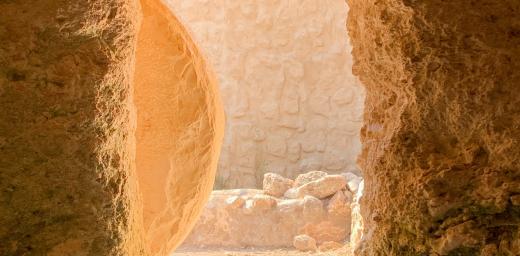Theological education for ‘the times in which we live’

Rev. Katia Maria Cortez Cristalles, Nicaraguan Lutheran Church of Faith and Hope. Photo: LWF/S. Gallay
Interview with Nicaraguan pastor Cortez Cristalles
(LWI) – The Lutheran World Federation (LWF) recently organized a roundtable to start defining a strategy for theological education across the global communion. The group of 15 educators and leaders of member churches, academic institutions and mission organizations from all the seven LWF regions discussed the different methodologies used to prepare people for ordained and lay ministries. They also outlined the many gifts and opportunities that can be put to use to address common challenges.
Roundtable participant Rev. Katia Maria Cortez Cristalles, from the Nicaraguan Lutheran Church of Faith and Hope spoke to Lutheran World Information about theological formation in her home church and some of the ideas she gathered at the roundtable.
How does your church equip pastors for work in the church so there is a balance between theology and the local context?
Our training is based on a critical harmony that is anchored in our reality. We try to do a theology of daily life, and we always try to discern what God is saying today aware that the message of the day is for the times in which we live. We always work through holistic training or well-rounded training, not just in biblical subjects but also in church work, in liturgy, in faith identity, and a vision of faith vocation.
What are the challenges and opportunities for ministerial formation in your context, Nicaragua?
Among the challenges we face is how to motivate more and more people to become interested in being pastors in our Lutheran understanding of the priesthood of all believers. Another challenge would be growth in the church; as we are a small church—with 7,050 members. Another is being able to provide our pastors with the necessary tools for biblical and theological training. And, lastly, how to integrate pastors better or send them for higher education in theology.
Our number one opportunity is our youth; we have quite a large number of youth in our church. Secondly, is our work on the model a lay person, and a model of pastoral ministry, whereby all the church members have a ministerial role. Then there is the opportunity of participating in the Lutheran World Federation, also through the work of the Latin America and Caribbean area desk. Through this participation we can obtain support and training for pastors and leaders through institutions such as the LAC Sustainability Institute, based at the Higher School of Theology in São Leopoldo, Brazil, and the Lutheran Augsburg Seminary in Mexico. This enables us to guarantee the quality of our training and also help other churches and denominations in our country to recognize the work that we are doing.
From your participation in the roundtable on Ministerial Formation, what have you found inspiring, surprising, and why?
First of all, I would like to say, it inspired me to feel like I am part of the global communion, where my church, even though very small compared with others, is an important church, and I felt the work we do there has value and it’s recognized. I feel that we are being heard. It has been surprising to see how alternative models for ministerial training or formation that we already have in Latin America, particularly in my country, are recognized and how they can become an example within this communion. And, the concern for theological education and ministerial formation is something for which the LWF should take great care and pay a lot of attention to, and with this round table, it’s clear that they are doing just that.
It has been surprising to see how alternative models for ministerial training or formation that we already have in Latin America, particularly in my country, are recognized and how they can become an example within this communion.
In Latin America, we are doing initiatives in this way, and we have been working in this way since 2012. We have been putting on the table all of our weaknesses concerning theological education and ministerial formation. But, what we’re also putting on the table are potential resources, and since 2012, this way of approaching things has generated for us the LAC Sustainability Institute. It has been quite clear in this round table over the past two days that there has been a lot of emphasis on networks, and I think this is akin to what we do in Latin America and the Caribbean as churches. We walk together, even though we are independent. I think the work that we have been able to accomplish here has left me with a lot of hope going forward.
**The 25-26 September roundtable was the first step in implementing the Twelfth Assembly resolution calling on the LWF and its member churches to “take steps to ensure theological education also takes account of different contexts and is open to all.” The Communion Office will develop and publish a strategy for collaboration and greater access to theological education by 2020.





